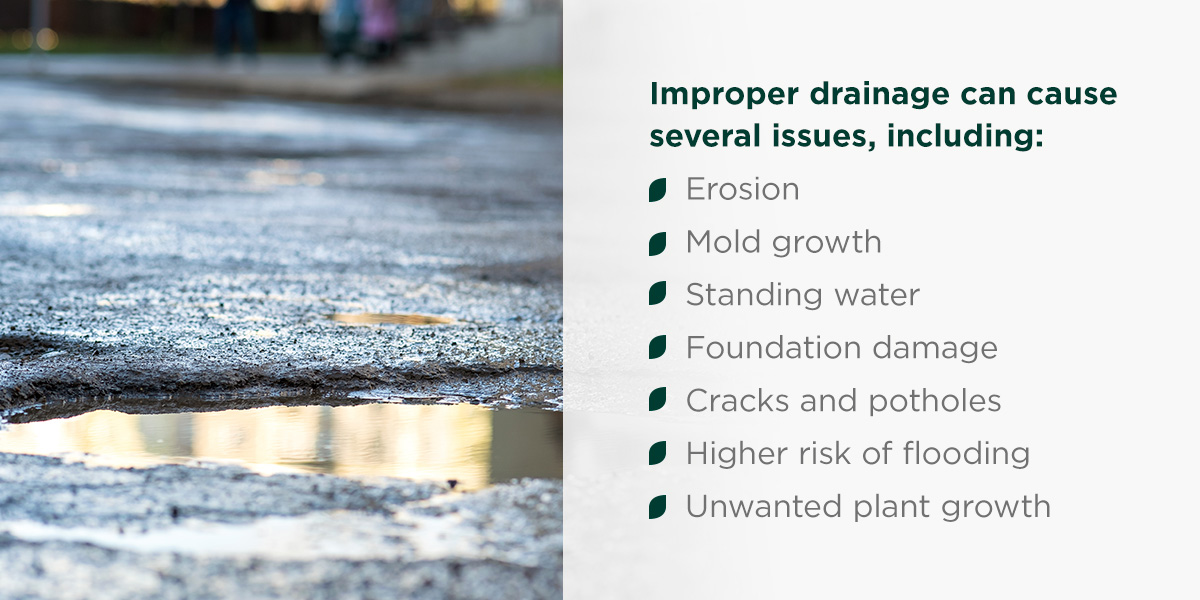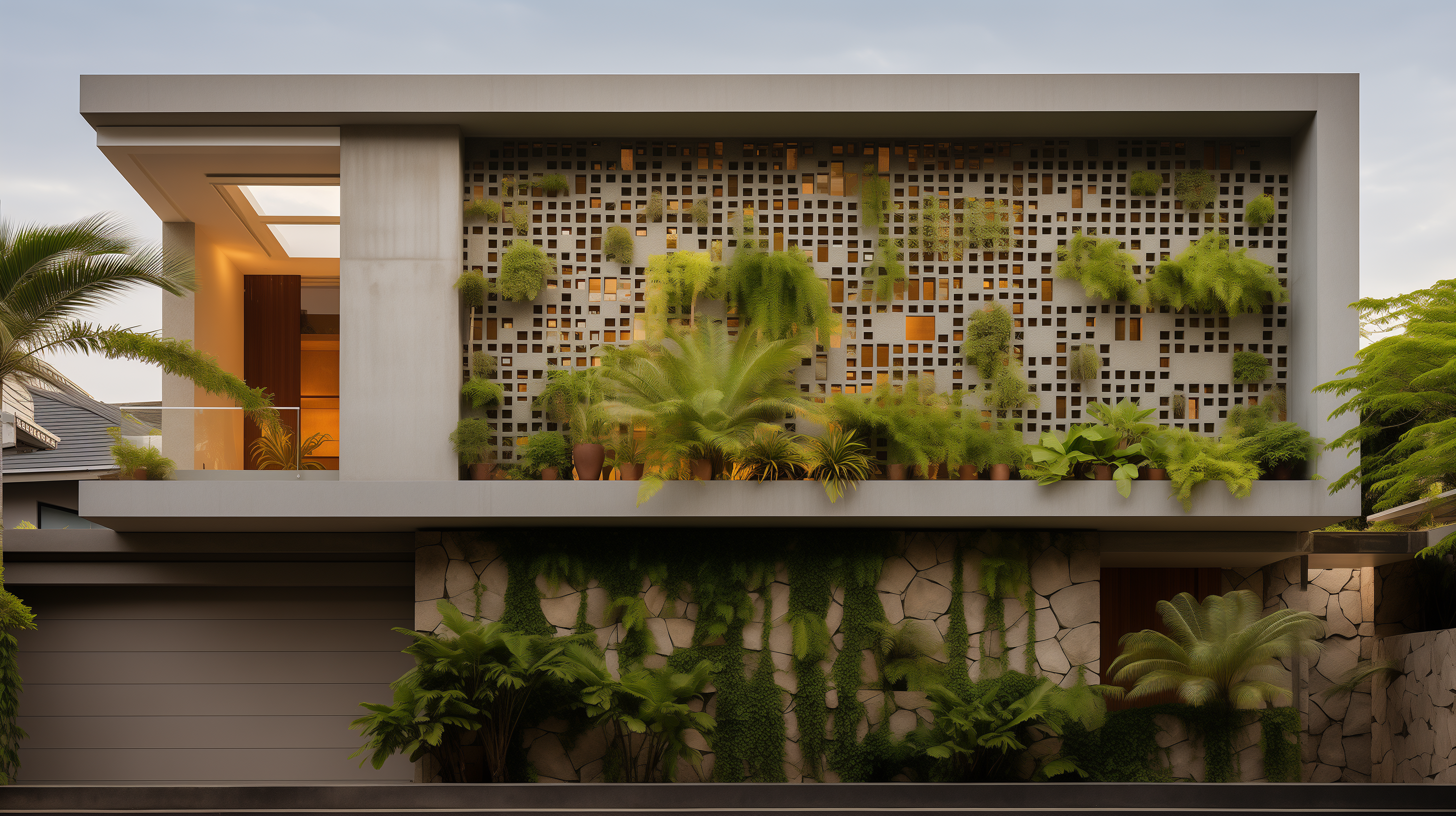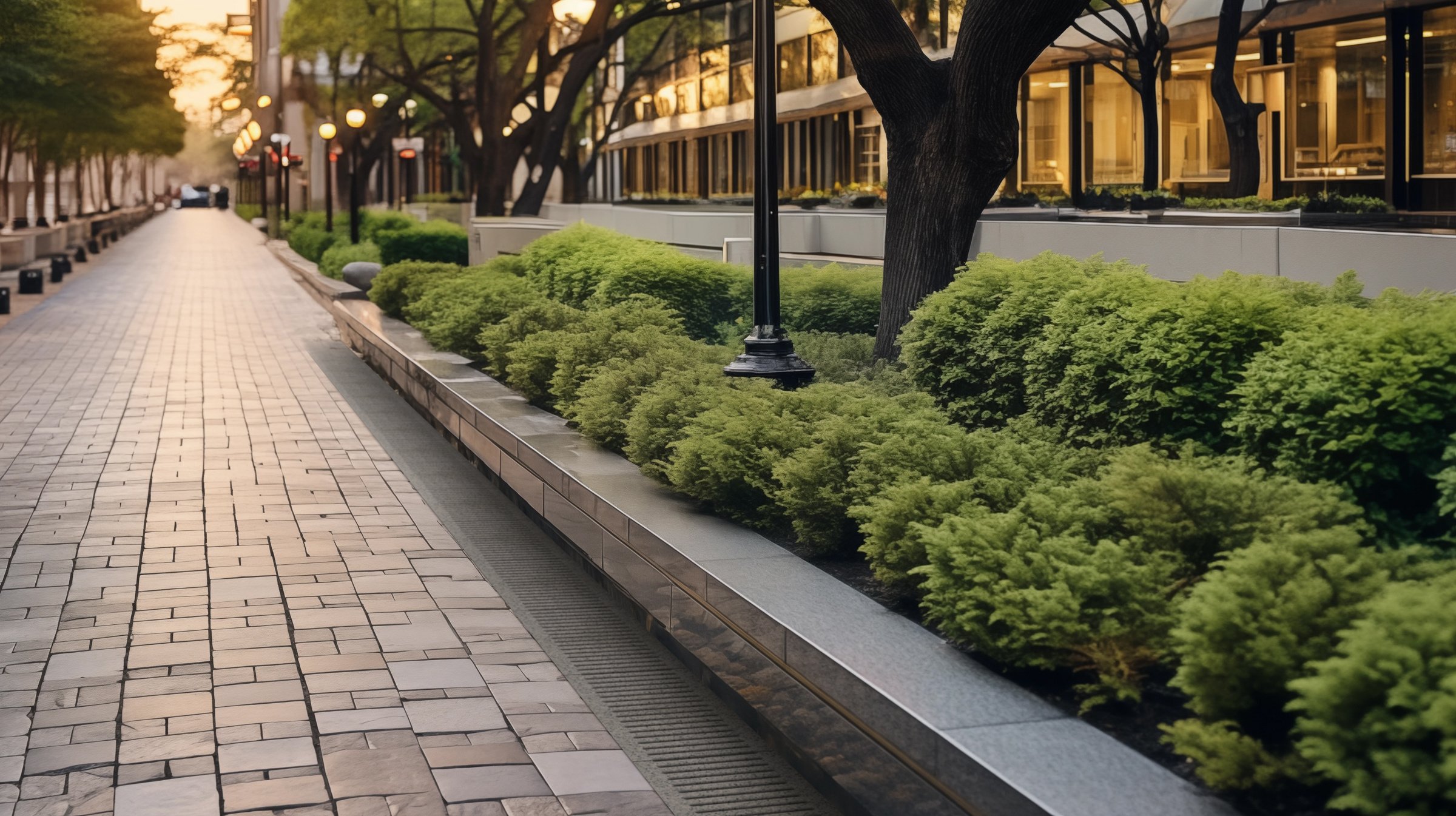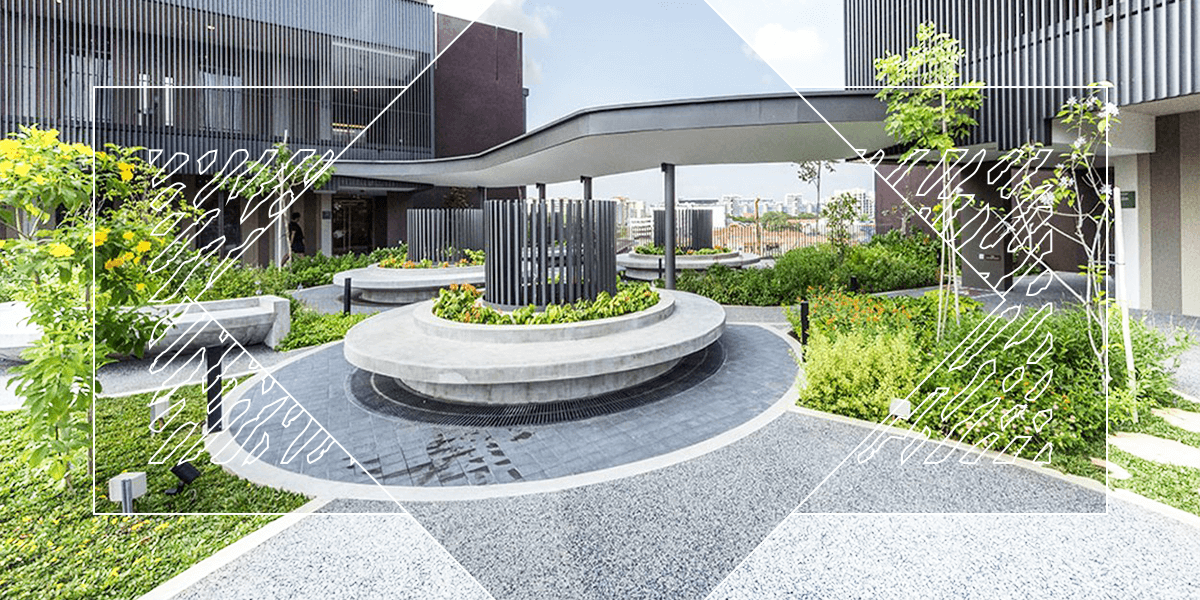Poor driveway drainage is more than an inconvenience or eyesore. It can lead to safety risks, structural damage and flooding. Learn more about why having a drain in the driveway is important, the driveway drain types available and how to maintain a driveway drainage system.
What Is Driveway Drainage?
Driveway drainage refers to how water flows off a driveway. Good drainage for driveways directs water away from buildings to a suitable drainage area, such as water-permeable ground or a municipal sewer system. A drainage system consists of appropriate slopes and various drains to manage the water and prevent pooling and flooding.
A drainage system may be as simple as a well-maintained, correctly sloped concrete driveway that directs water to a gutter on the street. In locations with more rainfall, less permeable ground or terrain that makes grading difficult, a suitable drainage system likely comprises several drain types in different places around the property. Even a gravel driveway may need additional drainage if the ground underneath can't absorb the water and puddles form at low points.
Different Types of Drains
Here are the most common types of driveway drains:
- French drain: A French drain is a perforated pipe placed in a trench filled with gravel. The pipe is only perforated on one side, with the solid side facing down so water can flow easily. Sometimes, the pipe is wrapped in fabric that lets water through but prevents debris from getting into the pipe. These drains work well in unpaved areas.
- Trench drain: A trench drain is similar to a French drain but doesn't include a pipe. It's sometimes called a gravel drain. Though a trench drain is cheaper than a French drain, it's less efficient and less reliable. Like French drains, trench drains work best in unpaved areas.
- Channel drain: A channel drain is a prefabricated drain enclosed on three sides with a grate on top. These drains typically cross a driveway's entire width and can be placed near the garage or the street. Depending on its shape, this type of drain may also be called a basin drain, box drain or slot drain. Channel drains are ideal for paved surfaces and places where the ground is less permeable or likely to get waterlogged.
- Catch basin: Rather than directing water to a specific location, a catch basin is placed at a low point where water already gathers. Like a French drain, the basin has perforations on the top half but is solid on the bottom. It stores the water to drain slowly over time rather than create a soggy puddle.
- Dry well: A dry well is similar to a catch basin, except it is located at the end of a drainage system to collect the water directed from other areas. Perforations in the container let water back into the ground slowly rather than all at once.
The Importance of Driveway Drains
Proper driveway drainage prevents water damage and ensures the safety of people who use the property. A suitable drainage system directs water away from buildings and prevents it from pooling on the driveway's surface. It can also relieve pressure on the municipal sewer system if it includes catch basins or dry wells rather than directing all water to the sewer.

Improper drainage can cause several issues, including:
- Erosion: Water can cause erosion if it isn't given a specific path to follow. Severe erosion may lead to structural damage if water flows too close to the house or under the driveway.
- Mold growth: Poor drainage can lead to dampness in the house, especially in the basement or crawlspace. Areas with excess moisture are more likely to grow mold, creating a health risk, particularly for household members with asthma or allergies.
- Standing water: Standing water can be a breeding ground for disease-carrying insects like mosquitoes.
- Foundation damage: Water pooling against the foundation can create or widen cracks and cause severe structural damage.
- Cracks and potholes: Poor drainage can lead to cracks and potholes in the driveway, increasing the risk of erosion and standing water and decreasing the driveway's life span.
- Higher risk of flooding: An improper drainage system can cause flooding if it's too small to handle the volume of water at the house or directs water toward the house instead of away from it.
- Unwanted plant growth: Moss and weeds growing in a driveway can make the surface slippery and unsafe. They also decrease a property's curb appeal.
Several factors lead to poor drainage, including improper grading and prioritizing costs or aesthetics over functionality. For example, installing a trench drain at the end of a driveway will be less expensive but also less efficient than a channel drain. Driveway drains need heavy-duty grates to support the weight of cars driving over them. However, durable drains can also have a decorative element — driveway drains can be aesthetic and functional, so there's no need to choose one feature over the other.
Additionally, neglecting to clean or maintain a driveway drainage system can also lead to poor drainage.
How to Maintain a Driveway Drain
The best way to maintain a drainage system is to inspect and clean the drains regularly.
At least once a year, remove the grates. Clean out any accumulated debris in the drain, then replace the grate cover. If the system includes any catch basins or dry wells, clean out those as well.
If you notice any cracks or potholes, repair them immediately, as they can cause bigger problems if left unattended. Similarly, clear out anything growing in the gaps, as this widens cracks and can lead to erosion under the slab. Erosion or natural settling can affect the grading and slope of the driveway, causing poor drainage.
Remember to check the home's downspout drainage, too. Avoid letting a downspout drain into the ground right next to the home's foundation. It's also necessary to route water elsewhere if it's causing erosion or excess wear on a paved area.
Proper maintenance ensures a drainage system continues functioning as it should, keeping water flowing smoothly and decreasing the risk of injury and damage.
Learn More About Jonite's Trench Grates
Now that you know why you need drainage on a driveway, you'll want to find attractive, durable grates. Jonite provides high-performance, decorative trench grates in various colors, patterns and sizes. Our products are also customizable if you need something specific. We make our grates from natural aggregates, recycled materials and polymers, so they are rust- and corrosion-resistant. Our grates are LEED-certified and are the only stone composite grates with the load-bearing strength of metal. To learn more about trench grates from Jonite or get answers to your questions, contact us today!











